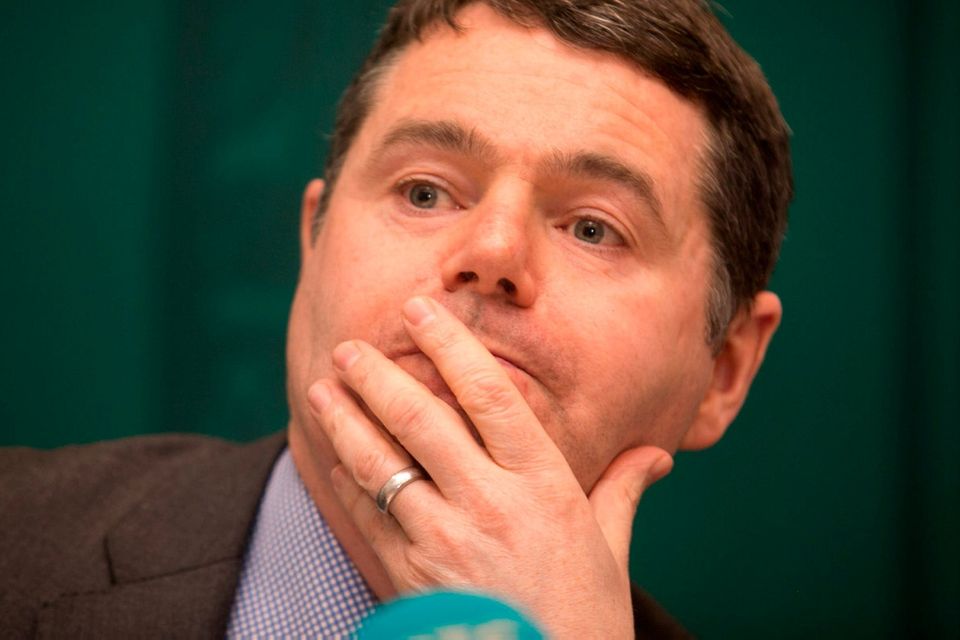Diesel, coal and cigarettes: Everything we know about Budget 2019 so far
Carbon tax hike is understood to be top of Mr Donohoe's listPrice of coal, diesel, petrol and cigarettes to rise to fund income tax cuts'Some sort of change' to the special 9pc VAT rate for hotels and restaurants
Finance Minister Paschal Donohoe. Photo: Gareth Chaney, Collins
Diesel, petrol, coal and cigarettes are set to go up in Budget 2019 as Finance Minister Paschal Donohoe looks for money to fund social welfare hikes and income tax reductions.
A series of stealth taxes on workers and businesses is being planned in order to satisfy spending demands from ministers and Fianna Fáil.
Carbon tax is understood to be top of Mr Donohoe's list, meaning the cost of home heating and motoring will rise.
He will also give himself at least another €100m to play around with by reducing Mortgage Interest Relief for 300,000 homeowners and hiking education levy paid by businesses.
Excise duty on cigarettes will also increase - but it is not yet decided whether the 50c hike applied last year will be repeated.
There is also an acceptance that there will have to be some sort of change to the special 9pc VAT rate for hotels and restaurants.
One minister said: "A lot of this year's Budget will be a 'copy and paste' exercise from last year. We have to reduce income tax, but given how little money is available the changes will have to be funded through additional revenue raising measures elsewhere."
The Government has €3.4bn for new spending next year, but €2.6bn of this has already been committed for public sector pay hikes and demographics.
This leaves just €800m, which will be split 2:1 in favour of spending over tax cuts.
Sources confirmed that substantial efforts are underway to find ways of raising revenue.
"Carbon tax is a definite but we need to be careful. It could backfire because workers and people in rural Ireland will be hit worst," one Cabinet source told the Irish Independent.
It is believed talks are taking place to find ways of mitigating the impact of carbon tax rises on low-income families and the elderly.
One option being looked at is an increase in the weekly fuel allowance of €22.50, which is paid to people who are dependent on long-term social welfare payments.
The Government is also likely to push the line that Ireland is viewed as lagging behind when it comes to actively tackling climate change.
Carbon tax is used internationally as a way of changing habits and encouraging people to use more green energy.
In Ireland it applies to kerosene, marked gas oil, liquid petroleum gas, fuel oil, natural gas and solid fuels - but the rate, which is €20 per tonne, has remained unaltered since May 2014.
The Society of the Irish Motor Industry (Simi) is already campaigning against higher fuel costs.
There has been some speculation that as well as hiking carbon tax, Mr Donohoe could raise the excise duty on diesel in a bid to promote electric vehicles.
Director general of Simi Alan Nolan said: "Given the importance of diesel cars for those living in remote areas, any such negative moves would impact unnecessarily harshly on rural Ireland.
"Diesel is also the fuel of business, and increasing diesel tax will increase the cost of doing business in Ireland which will also be challenged by the fall-out from Brexit."
As flagged last year, Mr Donohoe will reduce the level of relief available for people who took out a mortgage between 2004 and 2012.
It was reduced to 75pc this year, and faces a further 25pc cut in 2019.
Enterprises will also have to pay more into the National Training Fund next year. The levy will rise from 0.8pc to 0.9pc, with the money to be channelled into the higher and further education sectors.
Join the Irish Independent WhatsApp channel
Stay up to date with all the latest news















